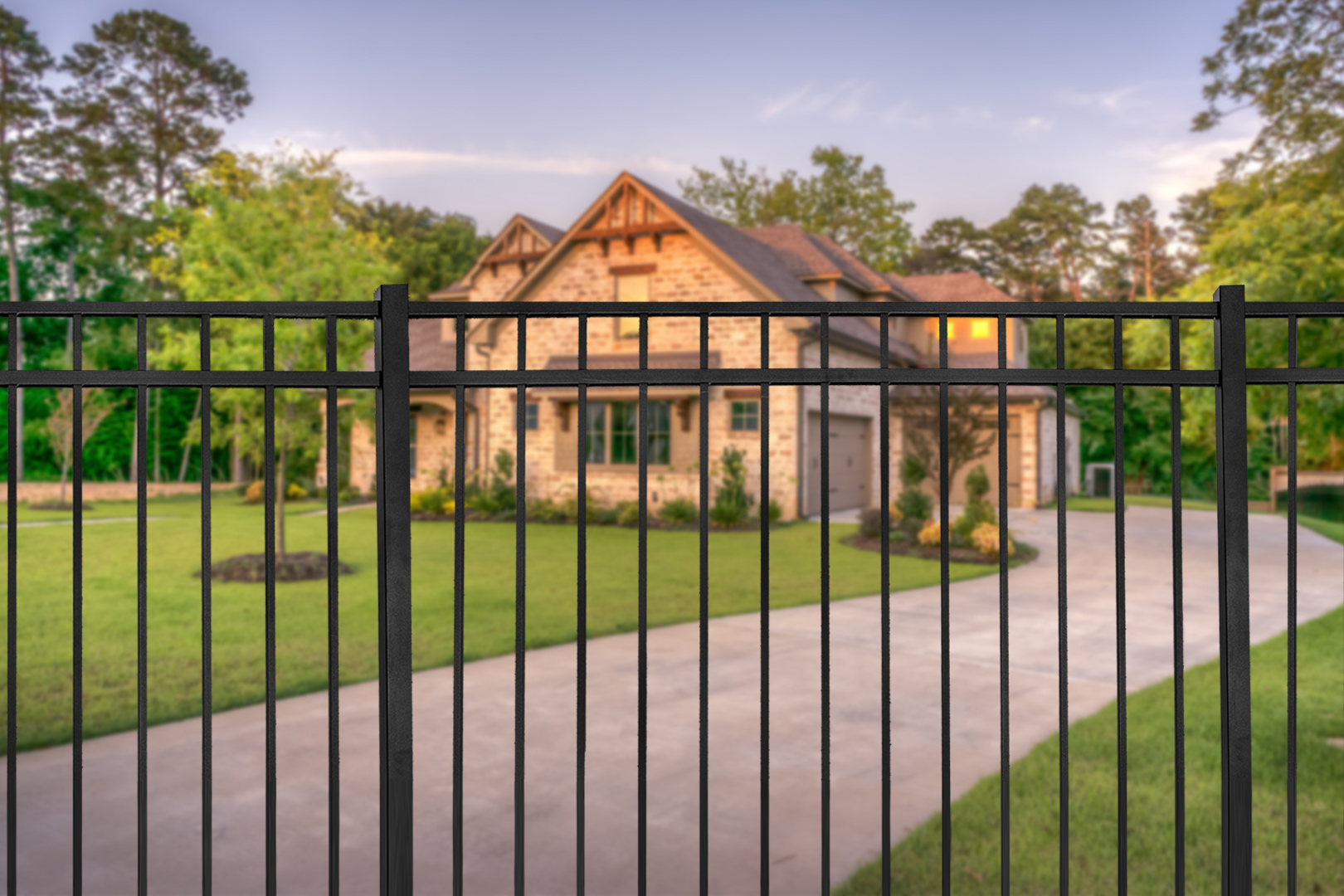All Categories
Featured

Choosing the right secure fencing material is important for accomplishing the balance of longevity, aesthetic appeals, and performance that fits your residential property. Timber, plastic, and aluminum are popular selections, each with one-of-a-kind functions that deal with specific requirements. Below's an extensive take a look at the benefits and negative aspects of these three materials.
Wood Secure Fencing. Pros:. Timeless Charm: Wood provides a natural, timeless appearance that complements different architectural designs. Adjustable: It can be painted or tarnished in a selection of colors and designs. Cost effective: Wood fences are typically less costly in advance than vinyl or light weight aluminum. Eco-Friendly: As a renewable energy, wood is lasting and eco-friendly when sourced properly. Cons:. Maintenance-Intensive: Requires normal discoloration, painting, or securing to protect against climate and pests. Much Shorter Life-span: Relying on the kind of wood and climate, it usually lasts 10-15 years. Susceptability to Damages: Prone to rotting, bending, and termite damage without correct care. Timber is perfect for homeowners that value aesthetics and agree to invest effort and time in upkeep to prolong its life.
Vinyl Fencing. Pros:. Resilient: Resistant to pests, rot, and climate, vinyl keeps its framework in rough problems. Reduced Upkeep: Requires little upkeep past occasional cleaning. Lengthy Life-span: Vinyl can last 20-30 years without substantial wear or damages. Functional Styles: Readily available in various shades, structures, and styles, including alternatives that imitate timber. Cons:. Pricey Installation: Vinyl fences are extra costly to set up contrasted to wood. Brittle in Cold Weather condition: Vinyl can break in severe chilly climates. Difficult to Repair: If harmed, whole areas may require replacement, which can be challenging to match. Plastic fencing is an excellent option for those focusing on long life and very little upkeep, even if it features a greater upfront price.

Light Weight Aluminum Secure Fencing. Pros:. Rust-Resistant: Light weight aluminum does not corrosion, making it perfect for moist or humid locations. Solid however lightweight: Deals toughness without being excessively hefty, which streamlines installation. Low Upkeep: Calls for little bit more than cleaning and occasional repainting. Durability: Light weight aluminum fences can last for years without significant degeneration. Sophisticated Styles: Commonly used for decorative functions, light weight aluminum includes elegance to any property. Disadvantages:. High First Price: Aluminum fencings are among the much more pricey alternatives. Restricted Privacy: Usually made with open spaces, they don't obstruct sights or noise. Prone to Damages: While strong, aluminum can be dented or bent with heavy impact. Aluminum is best fit for those that want a resilient, trendy fence and do not need complete personal privacy.
Making the Right Option. Each product has its weaknesses and staminas:

Wood is excellent for traditional aesthetic appeals and eco-conscious purchasers that do not mind upkeep. Vinyl helps home owners seeking a weather-resistant, low-maintenance option. Aluminum is a sturdy, attractive option for those that want beauty and long life. Consider your top priorities-- whether it's price, look, upkeep, or personal privacy-- and speak with a secure fencing professional to pick the material that ideal meets your needs. A well-selected fencing will certainly boost your residential property for years to come.
Latest Posts
Seeking Auto Repair in St. Louis? Visit Car-X St. Louis for Reliable Solutions
Published May 12, 25
1 min read
Visit Top Vision Services in Panama City, Florida at the Eye Center South
Published May 12, 25
1 min read
Experience LASIK Surgery in Your Area – Eye Center South Experts
Published May 12, 25
1 min read
More
Latest Posts
Seeking Auto Repair in St. Louis? Visit Car-X St. Louis for Reliable Solutions
Published May 12, 25
1 min read
Visit Top Vision Services in Panama City, Florida at the Eye Center South
Published May 12, 25
1 min read
Experience LASIK Surgery in Your Area – Eye Center South Experts
Published May 12, 25
1 min read